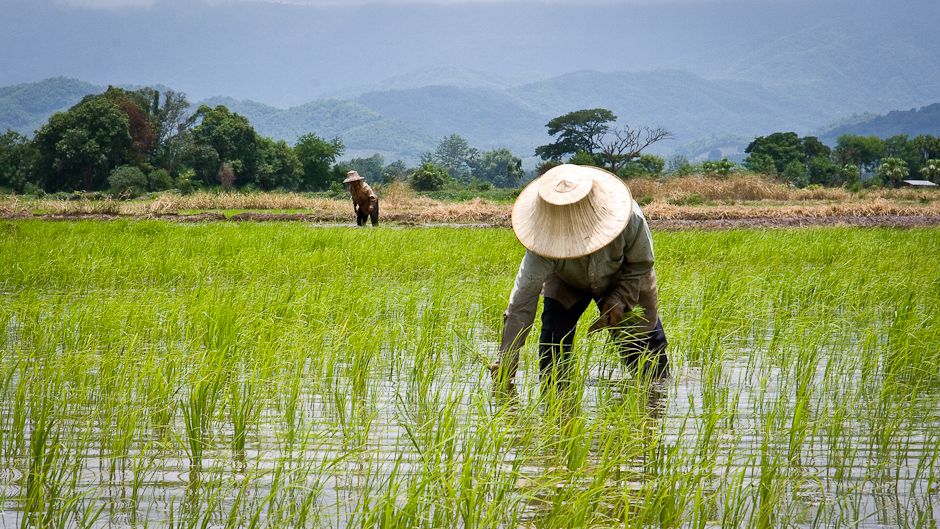About 11,000 rice farms measuring approximately 20,000 hectares across the country have been targeted for the adoption of a climate-smart irrigation technique over the next nine years.
The method, called Alternate Wetting and Drying (AWD), involved the intermittent flooding of rice farms to cut down on water consumption on farms and reduce methane emissions; a contributor to climate change.
The adoption of AWD, expected to start by the end of the year, was under an agreement between Ghana and Switzerland towards the implementation of Article 6 of the Paris Agreement of 2015 (climate change pact).
The Head of Climate Change at the Ministry of Environment, Science, Technology and Innovation (MESTI), Mr Mohammed Gyimah, and Ghana’s Focal Person to the United Nations Framework Convention on Climate Change,
Dr Daniel Benefoh, made this known in an interview yesterday in Accra. The interview was on the implementation of the Ghana/Swiss agreement signed in 2020 towards the achievement of global climate targets by the end of 2030.
Mr Gyimah explained that to cut down emissions, especially methane, rice farms have been targeted because rice cultivation involved methane emissions.
“Our traditional framers have this belief that if you allow the water to food the field throughout the lifespan of the rice that is where they have enough yield, Science and research have shown that it is not true”, he
said.
Mr Gyimah said due to anticipated challenges with water for rice farming, the project would help address that problem; improve food security through increased yields and protect the livelihood of farmers.
Ahead of the implementation of the method, he said inventory of all rice farms available and those that were suitable for the project based on proximity of the source of water and the nature of the land.
Explaining the irrigation method, he said the rice field would be flooded to a height of five centimetres above ground and the water would be allowed to settle below ground by 15 centimetres.
He said calibrated tube or Polyvinyl chloride (PVC) pipe would be inserted into the field at varied times to monitor the water level and help determine when the field should be flooded again or otherwise.
Touching on the readiness of the project, Dr Benefoh said the assessment of eligible farms would begin soon, followed by training of farmers on how to implement irrigation methods.
He said the project was one of two being implemented by the Swiss government in collaboration with the United Nations Development Programme.
The second project, he said, involved the construction of compost plants in Dambai, Takoradi, Ho and other regional capitals to reduce toxic emissions from waste which would have been disposed of informally.
–
Source: Ghanaian Times

